#Film Critic
Text
The level of media comprehension of Oppenheimer is so ridiculously terrible.
149 notes
·
View notes
Text

#film#letterboxd#movies#film critic#funny#tweet#twitter#screenshot#cinema#movie review#cinemetography
61 notes
·
View notes
Text
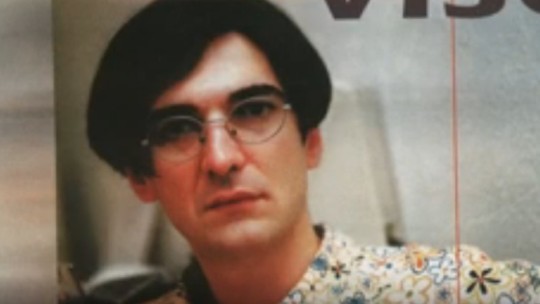
Dejan Nebrigić (deceased)
Gender: Male
Sexuality: Gay
DOB: 29 December 1970
RIP: 29 December 1999
Ethnicity: White - Serbian
Occupation: Activist, film critic, writer
Note: Was known as the initiator of the first trial of homophobic discrimination in Serbia. He was one of the founders of the LGBT movement in Serbia.
#Dejan Nebrigić#Dejan Nebrigic#lgbt history#lgbt rights#gay rights#male#gay#1970#rip#historical#white#serbian#activist#writer#film critic#critic#first
60 notes
·
View notes
Text

#tom hardy#venom#venom 2018#venom let there be carnage#eddie brock#eddie brock x venom#gay#gaycel#mlm yearning#mlm#I watched both movies back to back and they are amazing. it’s so gay you don’t even understand how obsessed I am#film critic#film criticism#venom 2018 review#symbrock
36 notes
·
View notes
Text
50 notes
·
View notes
Text
“I THINK THEY WENT AND CLOOOONNNEEEDDD TYROOOONNNNNEEEEE! CLOOOONNNEEDDD HIM!”🎶 When I tell y’all this movie had me like 😳😬😭🤣😭, I MEAN it, okay?! Like, Slick Charles, Fontaine, and Yo-Yo had me rolling THE ENTIRE TIME! But also, on a deeper level, I like how the fate of the Black community was left on those who everyone would’ve counted out and/or deemed problematic: the pimp, the drug-dealer, and the sex worker. Most of the time, depending on the lens, these people are deemed community miscreants and are heavily side-eyed. However, no one ever takes into account these people’s lives; the people and events that make up their everyday experiences in order for them to have ended up where they are in their lives and in society. They weren’t dealt the best of life’s cards and they were making due like everyone else in their community. It wasn’t until Fontaine seemingly came back from the dead that they knew more sinister-than-usual things were at work. If you enjoyed Jordan Peele’s “Get Out,” you will definitely enjoy “They Cloned Tyrone”!
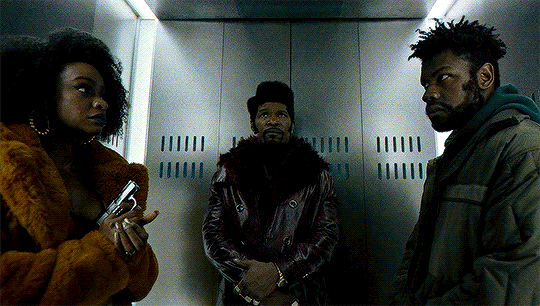
P.S. I really loved how the time setting was 1970s x early 2000s! The costume department did their thing and I want me-sized replicas of Slick Charles’ coat and Yo-Yo’s entire outfit in this scene!
#miscellaneous#jay#they cloned tyrone#they cloned tyrone spoilers#black tumblr#black girls who blog#black girls of tumblr#doaom#blackgirlbloggers#film critic#film critique#blerd#erykah badu#black fashion#black fandom
69 notes
·
View notes
Text
Poor Things Movie Review
Brought back to life by an unorthodox scientist, a young woman runs off with a lawyer on a whirlwind adventure across the continents. Free from the prejudices of her times, she grows steadfast in her purpose to stand for equality and liberation.
Since the beginning of his career, Yorgos Lanthimos has been pushing the boundaries of filmmaking. He is unafraid to handle difficult themes and complicated subjects with his strange aesthetic. So when he decides to adapt a whimsical Victorian science fiction novel that explores the complexities of what it means to be a woman, I would be down immediately. However, I wish I didn’t get my hopes so high for Poor Things as I am left deeply conflicted. On one hand, it is a technological achievement for Lanthimos. The world-building and the aesthetics of the film are beautiful. But on the other is an alarming and problematic story that is framed as female empowerment.
A mad scientist (Willem Dafoe) discovers a dead pregnant woman (Emma Stone) floating in the River Thames. Using his Frankenstein methods, he revives the woman by replacing her brain with that of her unborn child. As the weeks and months go by, her speech begins to become more coherent and her motor skills more refined. When she discovers masturbation, her “father” drafts up a contract for her to be married to his assistant (Ramy Youssef). However, before the marriage, she runs off with the lawyer (Mark Ruffalo) where she discovers her sexuality and the reality of human nature. From this synopsis, it sounds like a modern retelling of Mary Shelly’s “Frankenstein”. However, Poor Things is more of a horror story than Frankenstein will ever be.
Throughout Poor Things, we witness Bella (Emma Stone), be groomed, sexually assaulted, and r*pe by men. However, instead of framing these atrocities for what they are, it is framed as female empowerment as she experiences her sexual awakening. As previously stated, Bella has the brain of a literal child, thus causing her to be emotionally immature and mentally handicapped, despite having the body of a fully grown woman. Many men immediately see her mental capacity and take full advantage of her. For example, when Duncan (Mark Ruffalo) arrives to draft up the marriage contract, he immediately notices that Bella is mentally handicapped, so he sexually assaults her. However, instead of framing it as a crime, Bella enjoys it and furthering her sexual awakening. Then the next thing you know, she runs away with her groomer, despite the fact she can barely put together a full sentence. However, her grooming does not end there. During a low point, she is manipulated by a Madam of a brothel, to sell herself to make some coin. But instead of framing this situation as a cautionary tale of selling yourself for money, it's framed as female empowerment as she is owning her sexuality. Despite the Madam being fully aware that she is mentally handicapped.
I don’t know about you, but if this does not make your skin crawl, I don’t know what I could say to you. This is a disgusting portrayal of feminism, as it frames these disgusting scenes of abuse and r*pe as sexual exploration. Poor Things is a r*pe fantasy of what men think female empowerment is, as it sexually exploits and sensationalizes Bella Baxter’s journey. From the uncomfortable close-up of Emma Stone experiencing orgasmic pleasure, to the sheer amount of fully nude shots Stone had compared to her male counterparts, is disgusting. I am fine with sex in film, but here it is so uncomfortable and unnecessary. Bella is reduced to nothing more than an experiment and a sex toy for men, as the film primarily focuses on her physicality and her relationships with men rather than showing her autonomy or resilience to sexism. Furthermore, by the end of the film, you wonder what it is saying. What I got was that the only way a woman can be enlightened, empowered, and strong is by having a lot of sex with other people. No offense but that comes across as a man's version of feminism.
Now within this r*pe fantasy, there are moments in Poor Things where it becomes classically feminist. While Bella is traveling on a boat to Alexandria she meets Martha (Hanna Schygulla) and Harry (Jerrod Carmichael). Unlike the rest of the film, Martha challenges Victorian-era norms as she exhibits a strong sense of independence and intelligence, unafraid to assert herself in a male-dominated society. While Harry acknowledges her intelligent wit and autonomy. Not once do they treat Bella as a sexual object. Together they teach Bella philosophy, literature, and human nature. Thus empowering her mind and spirit as she discovers there are more pleasures to life than sex. She learns of the mutual respect and admiration they have for one another, thus she begins to challenge her views of Victorian gender roles. Furthermore, when Bella is working in the brothel, she develops a close relationship with her co-workers highlighting the bonds between women. It’s a perfect highlight of feminine strength. However, these scenes are few and far in-between. I wish Poor Things would have explored these areas of feminism, as it shows that women are more than sexual objects. But sadly today feminism believes the only way women can be empowered is by having a lot of sex or by turning them into a man (it would have been funny if the baby was a boy).
To further add to the positives, I mostly enjoyed the performances, but I don’t think they are as groundbreaking as many people consider them to be. Emma Stone gives a very interesting performance. She is a very charismatic and versatile actor, which clearly shows in her performance when studying her body language and mannerisms But when studying her performance more, it does come across as a stereotype of someone who is mentally disabled. Her character is one-dimensional and her struggles and resilience seem to be non-existent in her performance. Whether this was writing, direction, acting, or all of the above, I expected more out of her than this stereotypical portrayal of someone who is mentally handicapped. Mark Ruffalo gives the standout performance in Poor Things. He is hysterical as his pathetic manchild of a character. However, an element missing from his performance that would have been a great extra layer would have been to frame his character for the sexual predatory that he is. Willem Dafoe is good here, but nothing really special. He is wasted as his character feels one note not only in writing but in theme. He never confronts his unethical Frankenstein methods, which is a massive waste of an opportunity. I greatly enjoyed the presents from Hanna Schygulla and Jerrod Carmichael, and I wished they were in the film more.
Furthermore, as with all Yorgos Lanthimos films, you know they will be technically spectacular. The production and costume design will fully immerse you into this Steampunk fantasy. The costumes are intricate and delicately textured, which feels both old and futuristic. The production design feels both old and futuristic with the flying rail cars to the Victorian interiors. The cinematography is beautiful with pastel-like colors that fill every frame. Furthermore, the score is unique and ties perfectly into Lanthimos’s aesthetics.
Yorgos Lanthimos’s Poor Things presents a troubling array of issues that undermine its potential. If Bella had been a fully grown adult (both mentally and physically) who had just been sheltered her whole life, with predatory characters being framed as predatory characters, and less of the male gaze, I most likely would have enjoyed Poor Things. However, because Bella is a child who is being sexually exploited, whatever themes Poor Things tries to tell are immediately tainted by the film's predatory nature. It lacks the nuances of feminism and female empowerment, as it misunderstands what it is to be a woman. It is a shallow and distorted depiction of women’s agency and struggles told through the eyes of a man.
My Rating: C-
#film#cinema#movies#movie#filmmaking#filmmaker#moviemaking#moviemaker#cinephile#cinematography#film community#film is not dead#film review#movie review#film critic#movie critic#poor things#emma stone#yorgos lanthimos#margaret qualley#oscars#willem dafoe#mark ruffalo
25 notes
·
View notes
Text
Baccano Review
Since the early days of humanity, we humans have been fascinated with storytelling. From cave paintings, to oral storytelling, to the invention of the printing press and beyond, stories have been a staple of how we share experiences, lessons, or histories with subsequent generations.
When it comes to the recounting of events, though, therein lies a problem: from which perspective is the story told? Who are history's main characters? How can we possibly get a complete look at an event (or events) from only one person's perspective?

While most stories take a singular perspective, linear approach to storytelling, some attempt the daunting task of rounding up as many perspectives as possible, showing that there is always more than one side to every story.
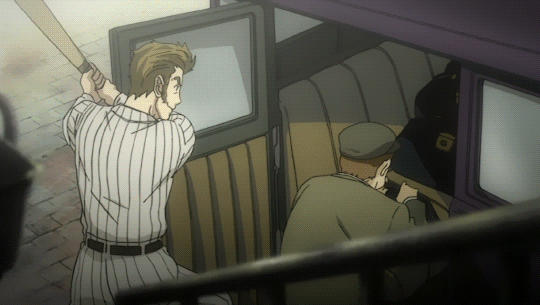
One such series is Baccano (2007), an anime based on the light novel series of the same name, written by Ryohgo Narita. Unlike most historical anime, Baccano's story is told from a dozen or so perspectives, creating a unique viewing experience that rewards audiences' close attention with a satisfying thrill ride.

Describing Baccano's plot is a bit difficult, simply because of how much goes on in it. Its a gangster story about various crime families in New York, and their endless cycle of violence against one another. Its a horror story, about a train hi-jacking that goes wrong after a murderous monster climbs aboard. Its also a comedy about a pair of goofy criminals who mess up their plans all the time, yet still somehow get away with them.

Yet, all these separate plot threads are interwoven in a such a way where each is essential to the overall story. Characters encounter each other in key moments of the plot, and their stories are changed because of each other. In one episode, we see a major character watching a fire break out at a factory, where he bumps into a mysterious woman. In the next episode, we see what the woman was doing before she got to the fire, and where she went afterwards. By doing this, Baccano weaves a complex story where dozens of 'main characters' can shine to their own degrees.

Where this comes most in handy is with how the series doles out scenes and important information. Instead of showing scenes in a linear fashion, Baccano cuts up events and scatters them to the four winds, forcing audiences to put together a timeline as best they can. One minute you could be seeing a gunfight in 1932, then the next you're seeing people board a train in 1931, seemingly unrelated. I found myself trying to plot each scene on a timeline as I watched, but by episode 4, I didn't need it anymore.

The non-linear storytelling of this anime can be tricky to anyone not accustomed to it, having a keen eye and keeping track of the three major events of the story is all you really need to understand the order of events. Each scene is book-ended with something shown in a previous episode, or relates to something that is revealed in the next episode, showing you exactly when each event takes place in the overall narrative. Its not rocket science to understand the story: it just takes a keen eye, and a basic understanding of cause and effect.
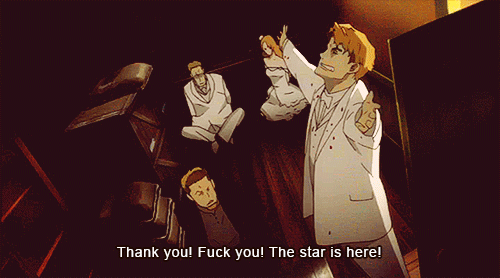
Beyond the story itself, I really enjoyed this series, especially because of its atmosphere and setting. Its a rare treat to see an anime set outside of Japan, especially a historical series like this one. Much like Black Butler (2008), another historical anime set outside of Japan, the English dub is a treat, featuring all the old-timey accents that you'd expect for the time period. That, combined with the occasional use of slang (such as using 'giggle juice' to refer to alcohol) and references to 30's pop culture, made the dialogue flow smoothly, and feel natural for the setting.

While taking place in the 1930's, Baccano is in no way a realistic depiction of history, something which isn't helped by it's fantasy plotline. The fantasy element of Baccano's plot doesn't ruin the show (I believe it actually makes the story cooler, though I feel like it could've been integrated more smoothly into the setting, or at least given more time to develop.

That, unfortunately, is the main issue with this series: it really needed more time. With a plot as dense and complex as this, you'd think it would get more time to stretch out and get comfortable. 13 episodes is shockingly little, especially for an adaptation of a light novel series with over 20 books in it. It baffles me that Brain's Base (the studio behind this anime) didn't give this series a longer run, or even a second season. It certainly could do with it.
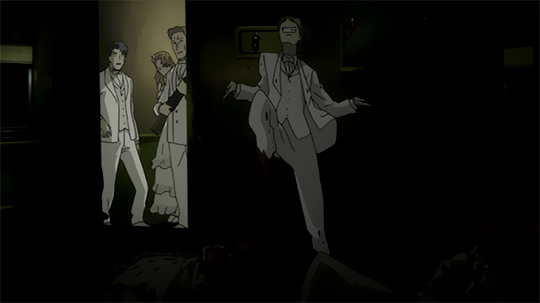
Still, this series makes the most of its short stay, like a tourist who insists on 'doing everything' on their weekend vacation to New York City. Every character gets a decent amount of screen time and a clear goal, and that goal is either reached or missed tragically. For a show with such a short run, its quite impressive just how much information and story is packed into its 13 episodes. By the end, I felt a connection to the key players, like we'd spent a whole afternoon together (which may or may not be related to me watching most of this anime in one afternoon).

All in all, I quite enjoyed Baccano, though I wish it was longer. The non-linear storytelling was a bit jarring at first, but didn't take me too long to understand. The characters ranged from hilariously stupid to genuinely cool, and each was entertaining to watch. At the end of the day, though, I only wish this series was longer. Characters like Ennis didn't feel like they got the time they deserved, and could've brought this series up from 'great' to 'excellent' if they had gotten more time to develop and explore.

I definitely recommend this series to anyone who hasn't seen it. Sure, its violent, bloody, confusing, weird, and ridiculously short, but it makes the most of what it has. We can only hope for a surprise second season announcement in the near future.
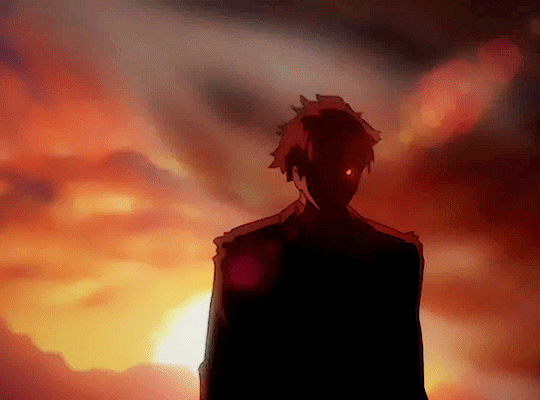
(Also this guy is the best character. I will not apologize.)
#anime and manga#anime review#review#anime#film critic#anime critique#animation#baccano!#claire stanfield
44 notes
·
View notes
Text
'Leo' Review
#Leo Review: "The team balanced middle-school humour w heartfelt lessons to make this a well-rounded feature for the whole family. The songs are the principal aspect of this film bc you can thread many ideas with lyrics that can connect to the audience."
By: Amanda Guarragi
There is something special about an animated feature that can speak to children and adults. The ability to educate children about life and how to express their feelings while making it relatable for adults is no easy feat. Every adult has gone through something, and it has stemmed from childhood. Films that tell a universal coming-of-age story will affect everyone…

View On WordPress
#Adam Sandler#animated feature#Bill Burr#blogger#Cinema#Entertainment#Film Critic#Film Reviews#Films#Leo Netflix#movie reviews#Movies#Netflix Film#Reviews#Writer
24 notes
·
View notes
Text
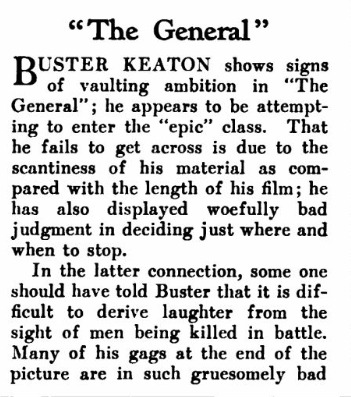

LIFE, February 24, 1927. Reviewer Robert E. Sherwood panned Harold Lloyd's THE KID BROTHER in the same article.
#film critic#film criticism#robert e sherwood#silent comedy#buster keaton#the general#1920s#1927#life magazine
13 notes
·
View notes
Text
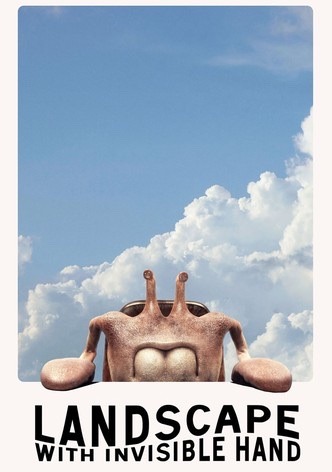
Okay as someone who is EXTREMELY nerdy about non-humanoid aliens depicted in media I LOVED this movie. The Vuvv are super weird, and tiny, and POWERFUL. Incredibly unsexy weird capitalist aliens. Go watch it!
#landscape with invisible hand#speculative biology#speculative evolution#movie nerd#movie critique#science fiction#sci fi#2023 movies#oscars 2024#film critic
16 notes
·
View notes
Photo
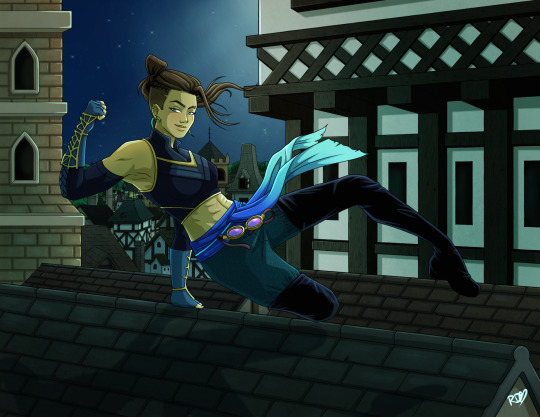
🎵 It’s Thursday night 🎵
#beauregaurd#cr beau#cr beauregard#beauregard lionett#the mighty nein#film critic#critical role fanart
114 notes
·
View notes
Text
the most relatable person in oppenheimer (basing on this scene)




13 notes
·
View notes
Text
“Today I look at Keaton's works more often than any other silent films.
They have such a graceful perfection, such a meshing of story, character and episode, that they unfold like music.
Although they're filled with gags, you can rarely catch Keaton writing a scene around a gag; instead, the laughs emerge from the situation; he was “the still, small, suffering center of the hysteria of slapstick,” wrote the critic Karen Jaehne.
And in an age when special effects were in their infancy, and a “stunt” often meant actually doing on the screen what you appeared to be doing, Keaton was ambitious and fearless. He had a house collapse around him. He swung over a waterfall to rescue a woman he loved. He fell from trains. And always he did it in character, playing a solemn and thoughtful man who trusts in his own ingenuity.”
- Roger Ebert
#buster keaton#roger ebert#silent film#silent comedy#1920s#1920s cinema#golden age of hollywood#silent movies#slapstick#comedy#Karen Jaehne#film critic#movie critic
59 notes
·
View notes
Text
bring me more movies like midsommar, fresh, the menu, movies that are not slasher ones or jump scares, but that psychologically mess with you
9 notes
·
View notes
Text
LISA FRANKENSTEIN Is to Die For
A lonely teen has her undead crush brought back to life, and he just might be the man of her morbid dreams. Written by Diablo Cody and the directorial debut of Zelda Williams, Lisa Frankenstein is an adoringly creepy and unabashedly edgy horror rom-com that’ll make you swoon — and maybe a little grossed out.
Lisa (Kathryn Newton) has recently relocated in her senior year of high school to live…
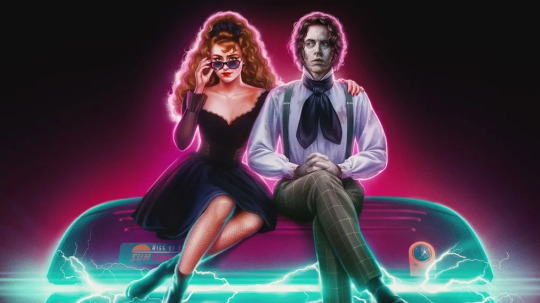
View On WordPress
#carla gugino#cole sprouse#comedy#Comedy Reviews#diablo cody#featured#female film critic#female filmmakers#film blog#film critic#film review#horror comedy#horror film#Horror Reviews#kathryn newton#lisa frankenstein#liza soberano#new in theaters#new movie#new movies#Review#reviews#rom com#Romance Reviews#zelda williams
7 notes
·
View notes